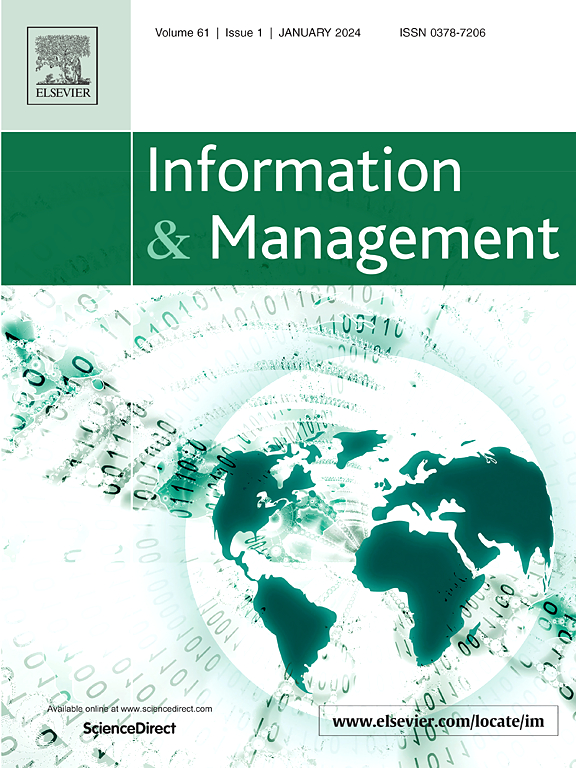如何提升反钓鱼培训成效?性能促进者的角色和特定于消息的应对响应
IF 8.2
2区 管理学
Q1 COMPUTER SCIENCE, INFORMATION SYSTEMS
引用次数: 0
摘要
网络钓鱼已经成为当今世界最普遍的安全威胁之一。尽管对反钓鱼行为的研究很多,但很少有人关注绩效促进者和个人的特定于网络钓鱼消息的应对反应如何共同作用,以确定该培训背景下的反钓鱼培训绩效。本研究以目标设定理论和应对反应为基础,从绩效促进因素(如激励结构、反馈、时间约束)及其与特定信息应对反应(如任务导向应对、情绪导向应对、回避导向应对)的相互作用出发,构建并检验了反钓鱼培训绩效模型。为了对提出的模型进行实证检验,我们在美国对692名受试者进行了三个实验。我们的研究结果表明,绩效促进因素和特定于消息的应对反应是理解反钓鱼培训绩效的重要预测因素。本文章由计算机程序翻译,如有差异,请以英文原文为准。
How to enhance antiphishing training performance? The roles of performance facilitators and message-specific coping responses
Phishing has become one of the most pervasive security threats in today’s world. Despite much research on antiphishing behavior, little attention has been paid to how performance facilitators and individuals’ phishing message-specific coping responses operate jointly to determine antiphishing training performance in the context of this training. Based on goal-setting theory and coping responses, this study was designed to develop and test a model of antiphishing training performance by focusing on performance facilitators (e.g., incentive structures, feedback, time constraints) and their interactions with message-specific coping responses (e.g., task-oriented coping, emotion-oriented coping, avoidance-oriented coping). To empirically test the proposed model, we performed three experiments on 692 subjects in the United States. Our results suggest that performance facilitators and message-specific coping responses are important predictors in understanding antiphishing training performance.
求助全文
通过发布文献求助,成功后即可免费获取论文全文。
去求助
来源期刊

Information & Management
工程技术-计算机:信息系统
CiteScore
17.90
自引率
6.10%
发文量
123
审稿时长
1 months
期刊介绍:
Information & Management is a publication that caters to researchers in the field of information systems as well as managers, professionals, administrators, and senior executives involved in designing, implementing, and managing Information Systems Applications.
 求助内容:
求助内容: 应助结果提醒方式:
应助结果提醒方式:


